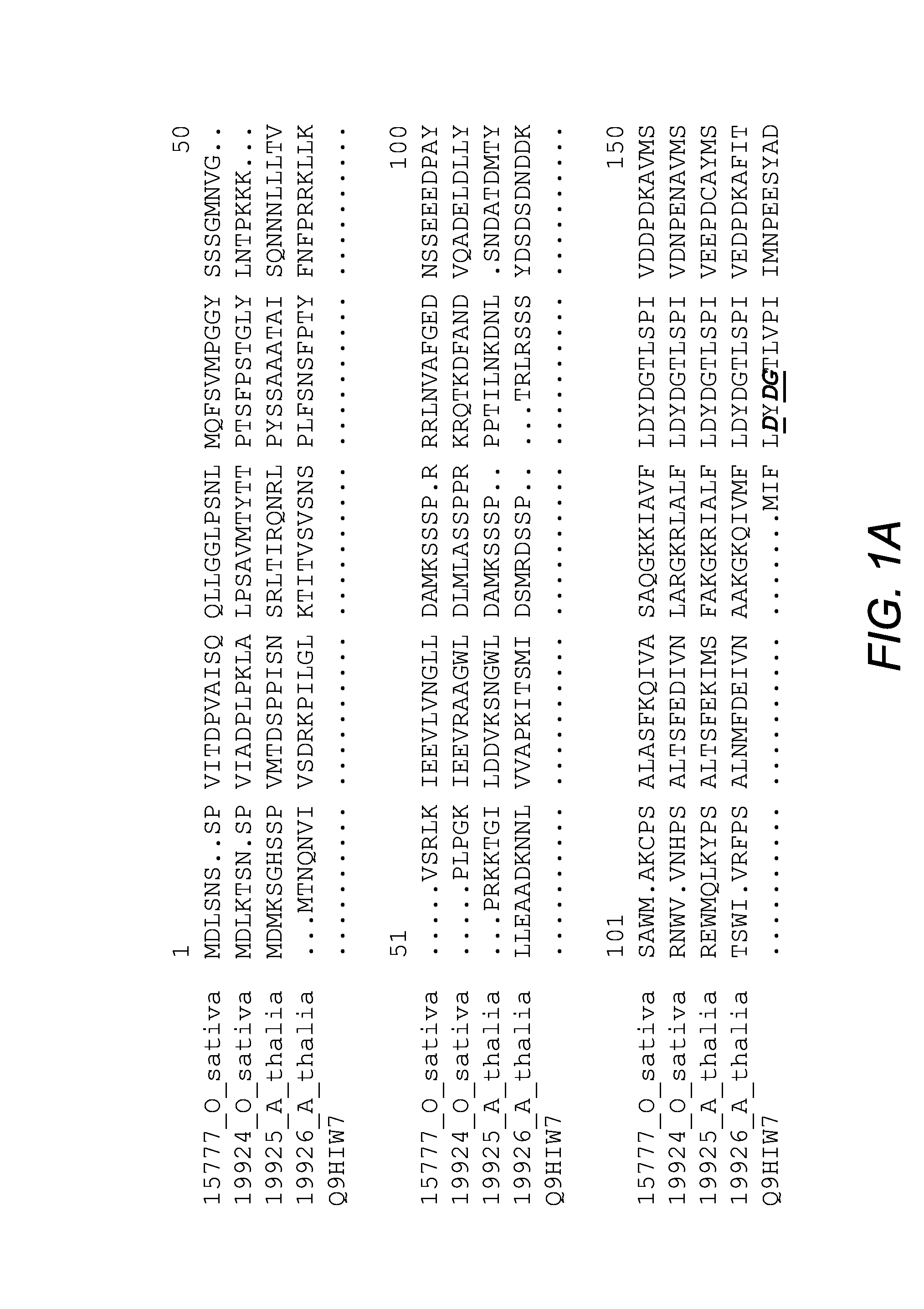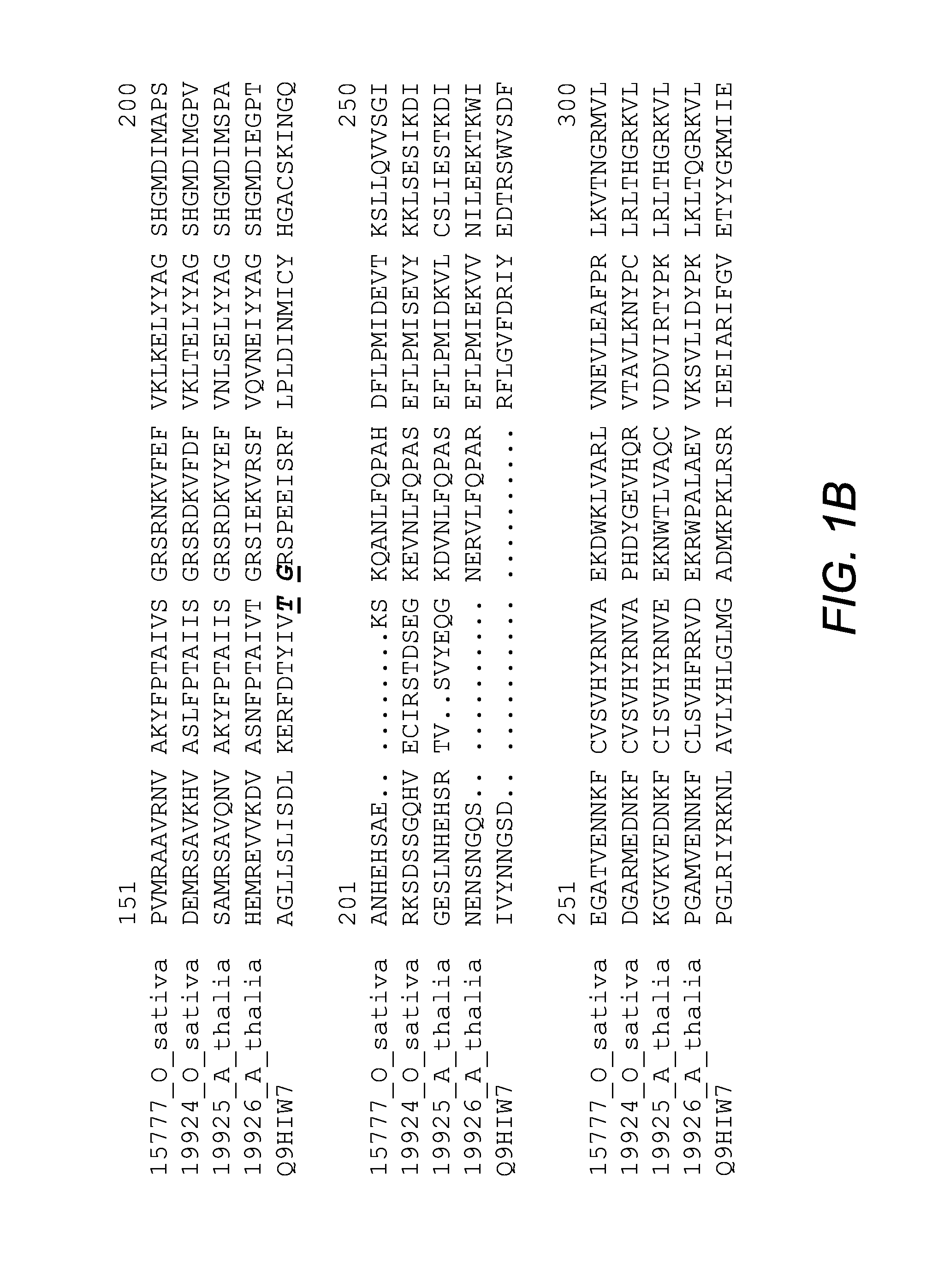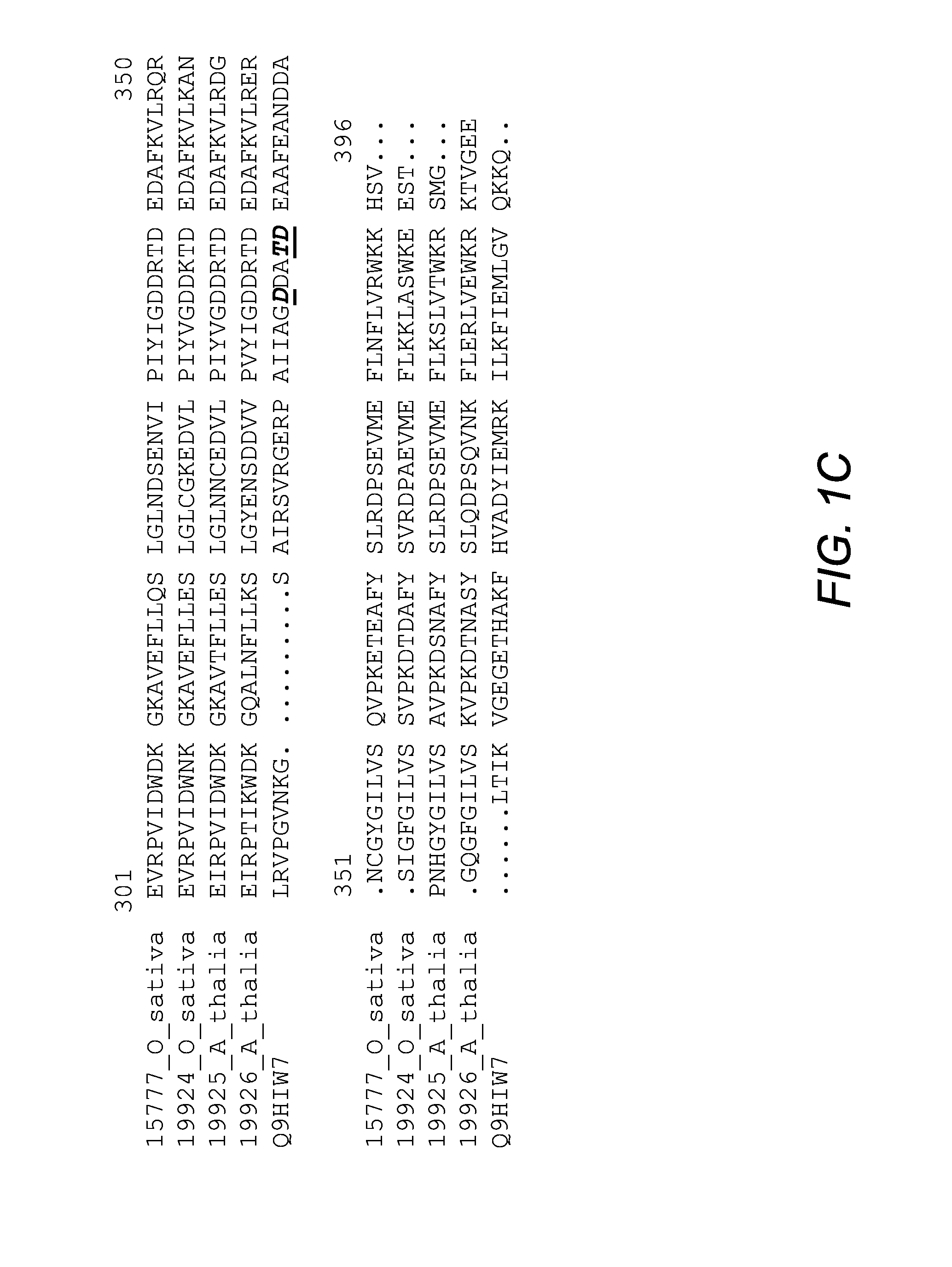Methods of increasing yield and stress tolerance in a plant
a technology of stress tolerance and plant, applied in the field of molecular biology, to achieve the effect of increasing yield, increasing plant and/or seedling vigor, and increasing cell growth
- Summary
- Abstract
- Description
- Claims
- Application Information
AI Technical Summary
Benefits of technology
Problems solved by technology
Method used
Image
Examples
example 1
Identification and Cloning of the Rice T6PP cDNA Sequence into a Binary Vector
[0308]The first vascular plant trehalose-6-phosphate phosphatase genes were cloned from Arabidopsis thaliana by complementation of a yeast TPS2 deletion mutant (Vogel et al. 1998). The genes designated AtT6PPA and AtT6PPB (GenBank accessions AF007778 and AF007779) were shown at that time to have trehalose-6-phosphate phosphatase activity. The AtT6PPA and AtTTPB protein sequences were used in TBLASTN queries of maize and rice sequence databases. Sequence alignments organized the hits into individual genes. Three maize and three rice T6PP homologs were identified. The rice T6PP (OsT6PP) cDNA sequence as indicated by SEQ ID NO. 1 was amplified using high-fidelity PCR. The 50 μL reaction mixture consisted of 1 μL rice cDNA library (prepared from callus mRNA in Stratagene's Lambda Unizap Vector, primary library size >1×106 pfu, amplified library titer >1×1012 pfu / mL), 200 μM dNTPs, 1 μL 20 μM of oligonucleotide...
example 2
Initial Evaluation of Rice T6PP Maize Events in the Greenhouse
[0309]Rice T6PP maize events comprising SEQ ID NO: 1 operably linked to a promoter having preferential expression in maternal reproductive tissue (i.e. OsMADS promoter) were generated and further evaluated in both the greenhouse and field as described in Examples 8-13 in U.S. Patent Application Publication 2007 / 0006344. Initial greenhouse and field evaluation of the maize events indicated some events having a yield increases in both non-drought and drought conditions (See U.S. Patent Application Publication 2007 / 0006344 herein incorporated by reference).
example 3
Evaluation and Identification High Yielding T6PP Maize Events
[0310]The maize events shown to confer a yield increase in the trials described in Example 2 and more specifically in U.S. Patent Application Publication 2007 / 0006344 were further characterized for yield and field efficacy. These events contained either binary construct 15777 or 15769 as is described in U.S. Patent Application Publication 2007 / 0006344. Essentially binary construct 15769 comprises an expression cassette having a OsT6PP (indicated in SEQ ID NO: 1 of the current application) operably linked to a OsMADS6 promoter (SEQ ID NO: 13). Binary construct 15777 contains the same expression cassette (OsMADS6 promoter and OsT6PP coding sequence) with the addition of transcriptional enhancers upstream of the OsMADS6 promoter. The details and specifics of both these constructs may again be found in the U.S. Patent Application Publication 2007 / 0006344. Overall there were 645 T0 maize events generated from 15769 and 587 maiz...
PUM
| Property | Measurement | Unit |
|---|---|---|
| temperature | aaaaa | aaaaa |
| temperature | aaaaa | aaaaa |
| pH | aaaaa | aaaaa |
Abstract
Description
Claims
Application Information
 Login to View More
Login to View More - R&D
- Intellectual Property
- Life Sciences
- Materials
- Tech Scout
- Unparalleled Data Quality
- Higher Quality Content
- 60% Fewer Hallucinations
Browse by: Latest US Patents, China's latest patents, Technical Efficacy Thesaurus, Application Domain, Technology Topic, Popular Technical Reports.
© 2025 PatSnap. All rights reserved.Legal|Privacy policy|Modern Slavery Act Transparency Statement|Sitemap|About US| Contact US: help@patsnap.com



